【By Observer News, Mountain Cat】
On July 23 local time, the UK's BAE Systems announced on its official social media account that Turkey and the UK government signed a memorandum of understanding (MoU) for the purchase of EF2000 "Typhoon" fighter jets. The signing ceremony took place at the 17th International Defense Industry Exhibition (IDEF2025) in Istanbul, Turkey, and was signed by Turkish Defense Minister Yasar Guler and UK Defense Secretary John Healey.
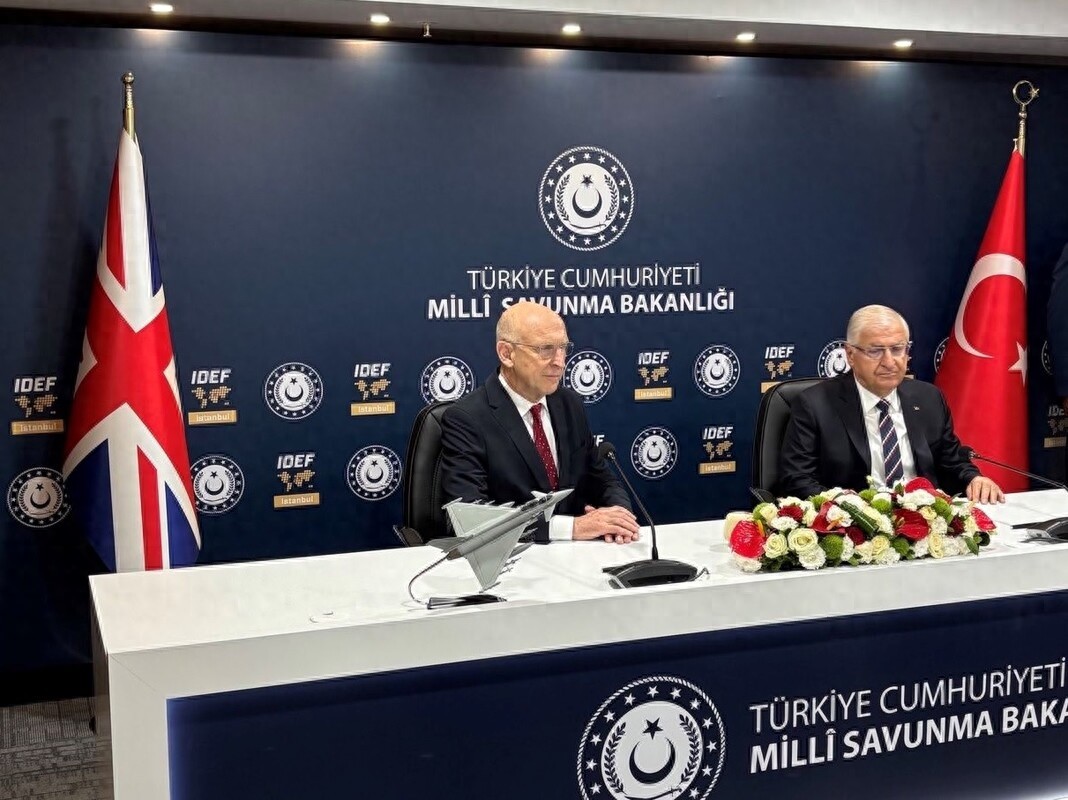
Signing ceremony for the MoU on the sale of "Typhoon" fighter jets between the UK and Turkey, BAE Systems' official X (formerly "Twitter") account
BAE Systems stated that it welcomed the signing of the memorandum of understanding regarding the purchase of "Typhoon" fighter jets between the two countries. The signing of this memorandum means that the "Typhoon" is temporarily the preferred choice for Turkey's next-generation fighter jet procurement. Previously, Turkey had considered many other options, including purchasing additional F-16s from the US, as well as seeking to resume the frozen F-35 order due to the purchase of Russian S-400 systems. However, this potential arms deal still requires a formal procurement agreement, which may be finalized after further negotiations between the UK and Turkey, with reports suggesting that the formal procurement contract could be signed this autumn.
It is currently unclear how many "Typhoon" fighter jets Turkey will purchase or when they will be delivered. However, previous reports indicated that Turkey might order 40 fourth-tranche (Tranche 4) standard "Typhoons," which are equipped with the "Captor-E" active electronically scanned array radar using phased array antennas and new avionics. In addition, officials from BAE Systems also revealed that the arms deal would include MBDA's "Meteor" ramjet-powered long-range air-to-air missiles, while Turkey's main NATO ally, Greece, has already purchased and equipped the "Meteor."
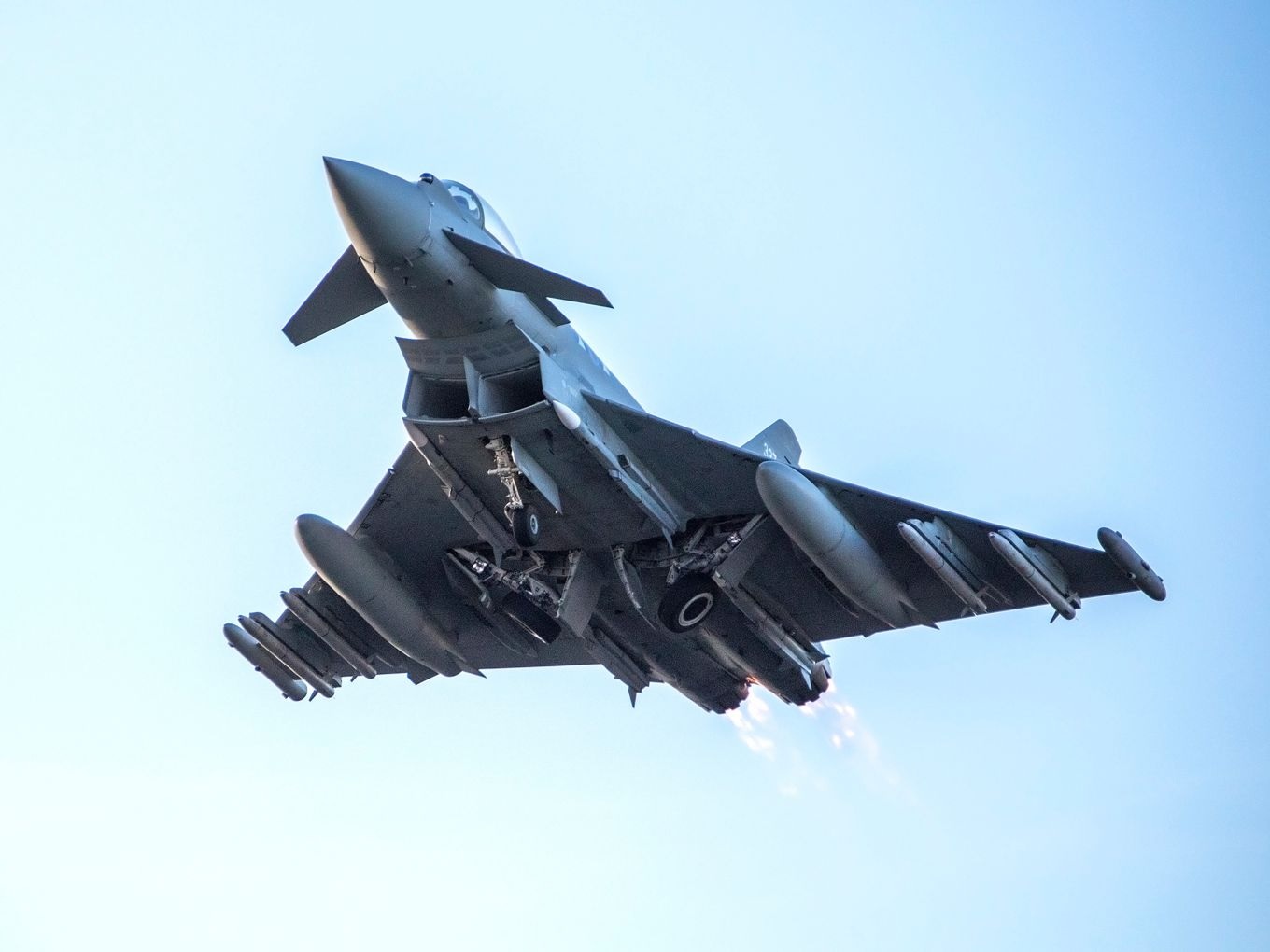
(Photo) Royal Air Force Typhoon fighter jet, carrying four Meteor long-range active radar-guided air-to-air missiles and four AIM-132 Asraam infrared dogfighting missiles. Royal Air Force
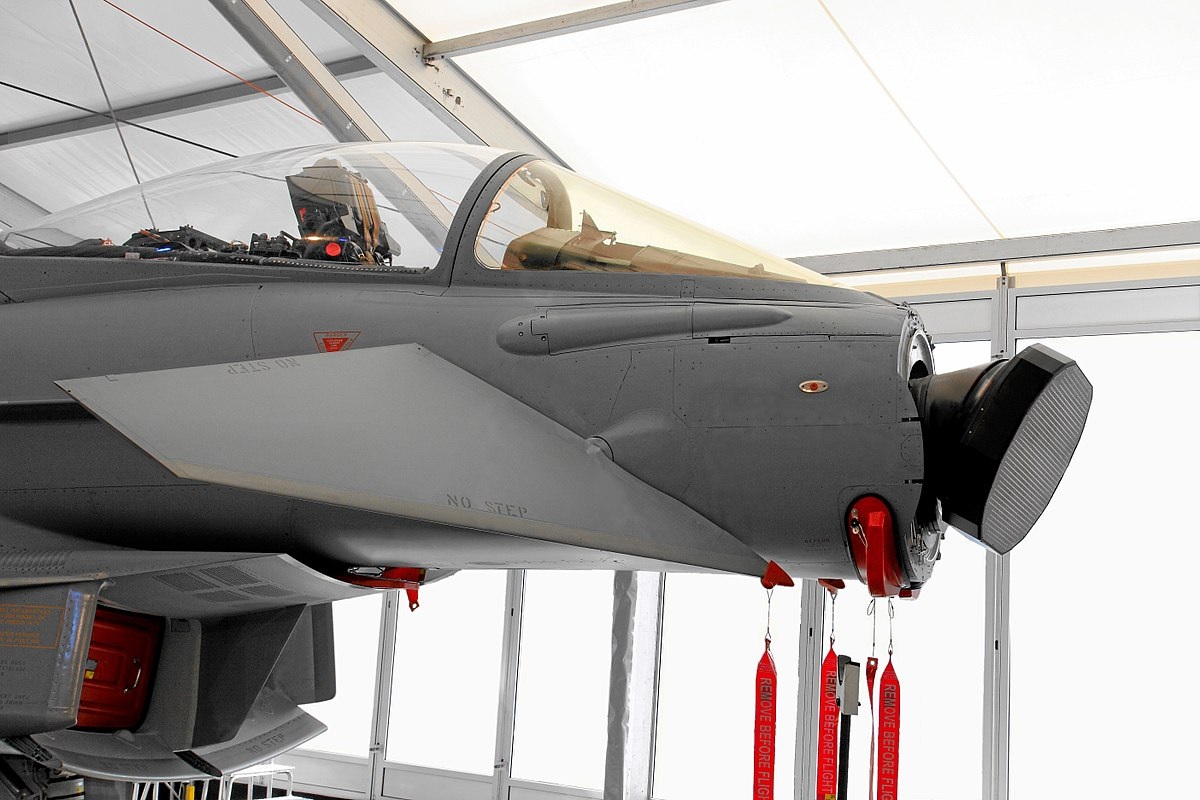
The "Captor" active electronically scanned array radar to be used on the fourth-tranche Typhoon fighters
As a multi-national joint development aircraft, the export of the Typhoon requires approval from all major joint development partners, with Germany historically being the key decision-maker. Recently, before announcing the agreement, the German Federal Security Council had approved this potential transaction, and Turkish President Erdogan also stated earlier this week that both Germany and the UK supported the sale of the Typhoon to Turkey. For BAE Systems, the Turkish order is crucial. There have been reports that the final assembly line for the Typhoon in Warton, UK, will be permanently closed after 25 years unless more orders keep production going. The last batch of aircraft currently being built at the factory were for Qatar, and all have been completed. Therefore, British Prime Minister Starmer also welcomed the agreement, stating that this potential deal would "maintain and protect" the UK's defense industry. The production of the Typhoon is a significant driver of economic growth in the UK, supporting thousands of jobs across the country.
Currently, the Turkish Air Force has over 240 F-16C/Ds and about 20 F-4E "Phantom" 2020s, with most F-16s assembled domestically in Turkey during the late 1980s to early 1990s. Originally, Turkey was an initial international partner of the US "Joint Strike Fighter" (JSF) program and planned to use the F-35 as its next-generation main fighter. However, due to Turkey's insistence on purchasing the Russian S-400 air defense system, the Pentagon announced in 2019 that Turkey had been removed from the joint project, and the F-35A ordered by Turkey, which had already been completed and tested, was held back and delivery was suspended. In addition to not refunding the purchase price, Turkey was also required to pay an extra "storage fee."
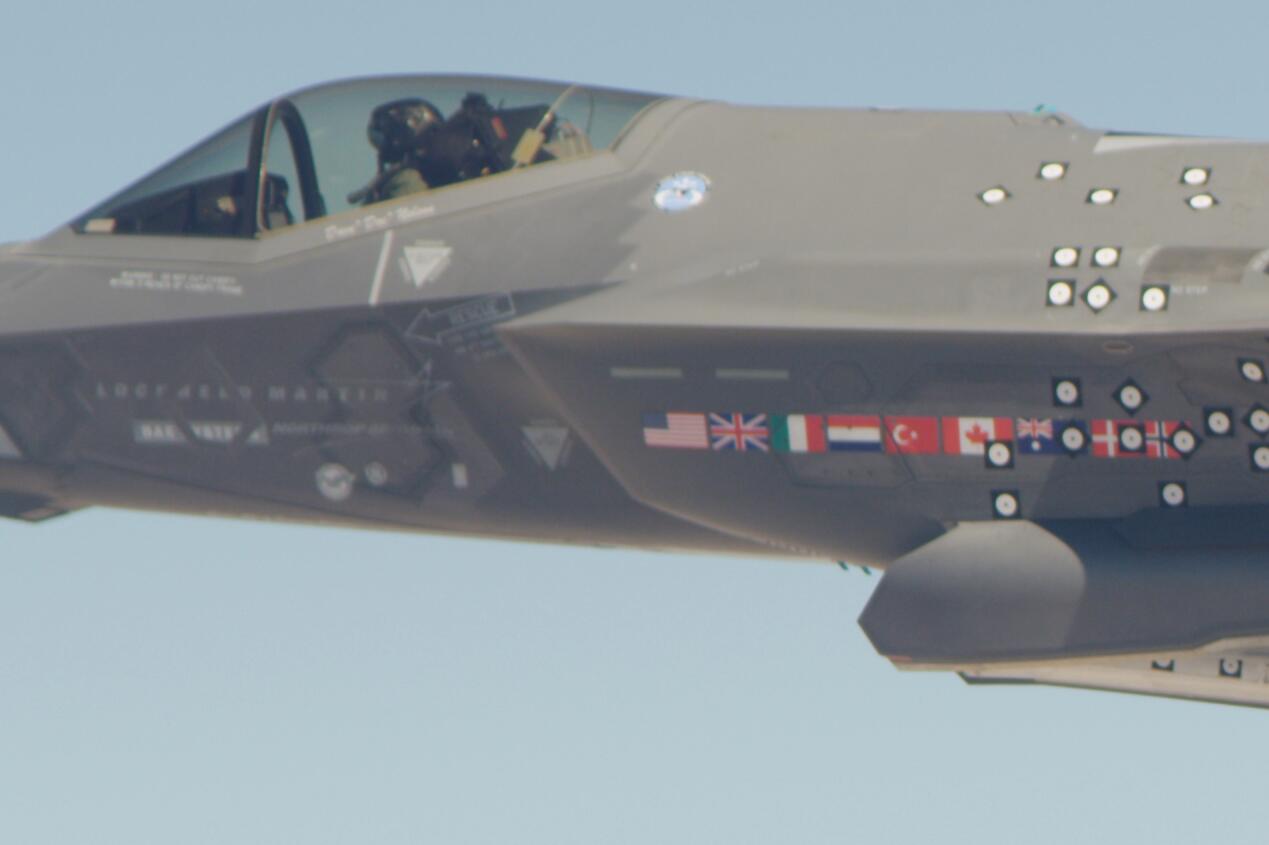
F-35A AF-01 prototype aircraft with the initial partner country of the JSF project, Turkey listed among them
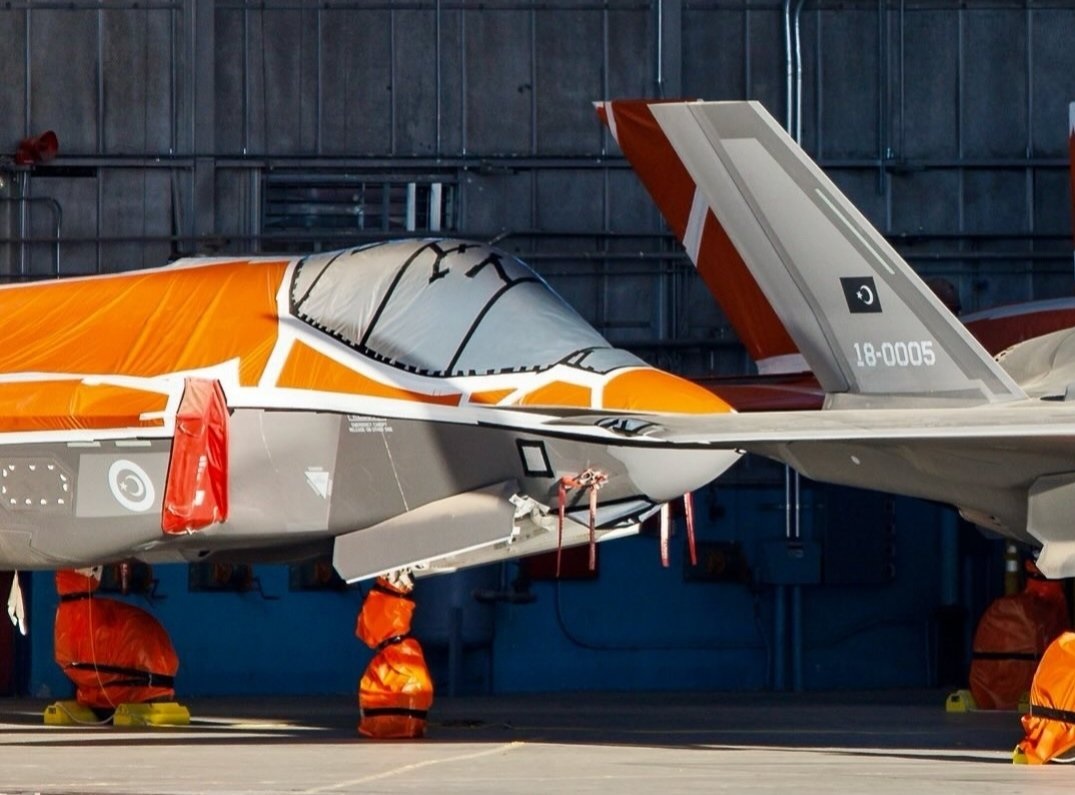
After the S-400 incident, the Turkish F-35s that had been completed and tested were detained and stored in the US
Following this, there were rumors that Russia would sell Su-57Es to Turkey, but these eventually faded away. Turkey's subsequent request to purchase additional F-16s was also rejected by the US. Until early last year, the US Department of State approved a $4 billion deal for 40 complete F-16 Block 70 aircraft and the upgrade of 79 F-16Vs for Turkey. At almost the same time, then-US Deputy Undersecretary of State Victoria Nuland, during her visit to Turkey, stated that if Turkey abandoned the S-400 system (and provided it to Ukraine), the US could provide "Patriot" systems as an alternative and possibly clear the way for Turkey to rejoin the F-35 program. Although Erdogan also mentioned last month that he had not given up the intention to return to the F-35 program, resistance from the US Congress continues.
In addition, the first prototype of Turkey's self-developed next-generation stealth fighter, "KAAN," made its maiden flight on February 21, 2024, but as of now, the number of test flights has been relatively low. The second prototype, which was exposed in January this year, has not yet entered testing. Moreover, the supply prospects for its engines remain unclear, and their reliability is "under question." Even if everything goes smoothly, it may not be operational until 2030.
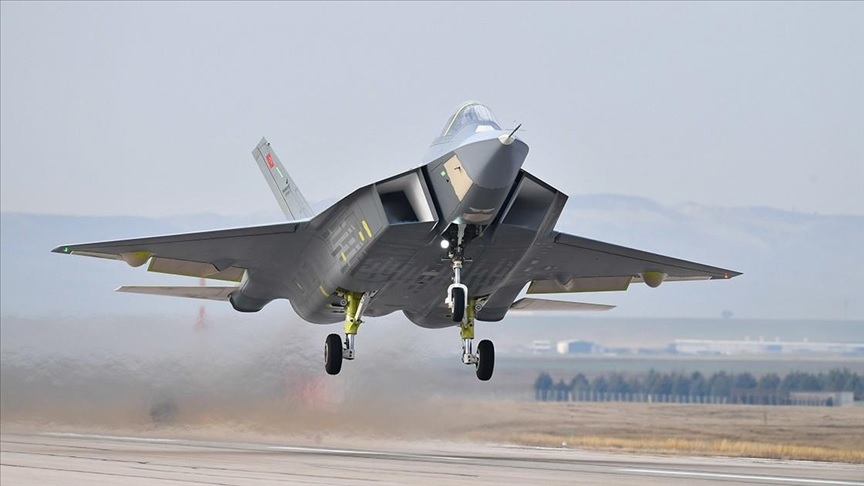
On February 21, 2024, the first prototype of Turkey's self-developed next-generation fighter "KAAN" made its maiden flight
Therefore, Turkey indeed urgently needs a fighter jet that can serve as a transitional solution to meet the air force's combat readiness needs before acquiring fifth-generation fighters. Although Turkey's F-16 fleet has undergone upgrades, its age is relatively long and gradually aging. Not to mention that the F-4 "Phantom" is scheduled to be completely retired by 2030 according to current plans. Although signing the memorandum of understanding is not the final step in purchasing the fighter jets, in light of these circumstances, the "Typhoon" has indeed become the most likely candidate for Turkey's next-generation fighter jet.
This article is an exclusive article by Observer News. Unauthorized reproduction is prohibited.
Original: https://www.toutiao.com/article/7530636573902111275/
Statement: This article represents the views of the author and is not necessarily those of the publisher. Please express your opinion by clicking the [Up/Down] buttons below.